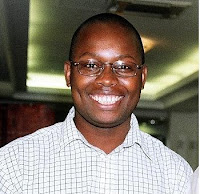Role of microfinance in the post-disaster context

The terrible scale of the 26 December 2004 tsunami in the Indian Ocean has focused world attention on questions of effective disaster relief and rebuilding efforts. PlaNet Finance has declared:
“In the weeks following the tragedy of the South Asian Tsunami Disaster, one should not forget that: The most disastrous effect of the disaster may be one whereby the affected region becomes dependent on international charity...” and that
“Donors that have reacted efficiently and quickly for emergency and relief should also gather soon to define a Global Program for Reconstruction and Development in the region based on the delivery of adapted microfinance services in the region...”
Q. What do you think the role of microfinance should be in the post-disaster context?
A post-disaster situation is characterised by a disruption of people's livelihoods. This happens due to loss of life, property and infrastructure but also destruction of other factors of production including land and other natural resources. In addition to this, a post-disaster context entails that the majority of the population is left in poverty thereby leading to their exclusion from the formal mainstream financial system. As such, microfinance has a very important role to play in the post-disaster context. With its unique ability to provide financial services to the poor, microfinance thus stands out as a viable option to address financial needs of people in the post-disaster context.
Through its unique methodologies such as group lending, microfinance can reach out to people in post-disaster situations. Microfinance programmes can provide entrepreneurial skills training to disaster affected people. They can also enable people to access credit in order for them to conduct micro-enterprises. Furthermore, people can have access to savings and insurance services, which can help smoothen their cash flows and provide security for their investment, respectively. The ability of microfinance programmes to sustain themselves means that they can meet the needs of the majority of people in post-disaster contexts on a long terms basis.
In short, microfinance has a very important role in helping disaster affected people to rebuild their infrastructure and regain their sources of livelihood.
Kennedy Bisani Lweya, PhD
Written while a PhD student in Microfinance at the University of Reading
United Kingdom
http://www.uncdf.org/english/microfinance/pubs/newsletter/pages/2005_02/voice.php


0 Comments:
Post a Comment
<< Home